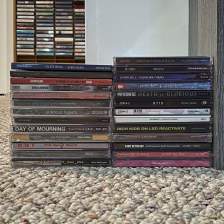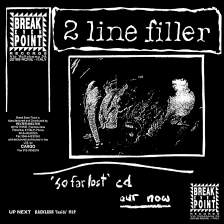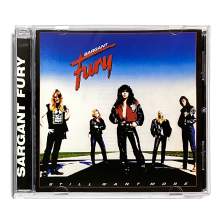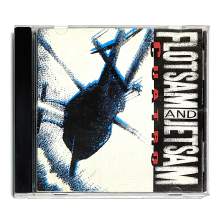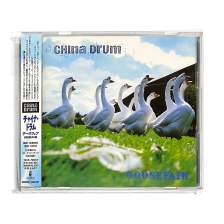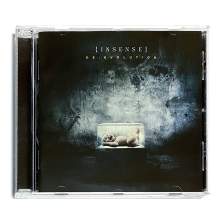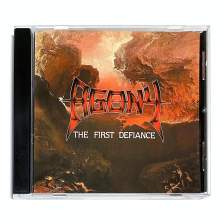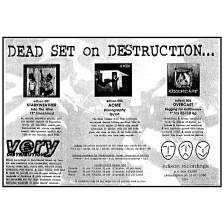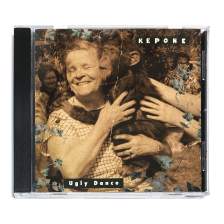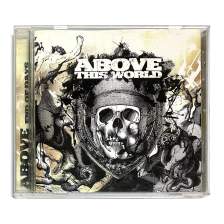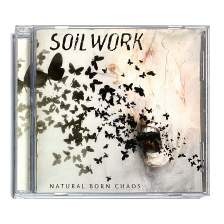I did a report on Nepal when I was in third grade. I don't remember much about it other than the fact that I made some kind of Nepali salad to bring into class for an international potluck meal of sorts. I just randomly chose Nepal because—for whatever reason—I thought it seemed cool.
So, when Kshitiz Moktan contacted me about Sangharsha, I was intrigued. There's something fascinating about a bunch of guys from Nepal ending up in the melting pot of New York City, forming a band, and within a few years recording an outstanding set of tunes with a high-profile musician such as Kurt Ballou at GodCity.
That set of tunes—Sangharsha's latest outing, Bayou—offers up six tracks of brooding metallic hardcore that effortlessly combine caustic textures, crushing rhythmic grooves, and hauntingly dissonant melodies. It's top-shelf material that would be right at home alongside the Deathwish Inc. roster, so fans of that realm should absolutely take note. The album is now available digitally via Bandcamp, and you can pre-order the limited edition LP from Alerta Antifascista Records.
Here's my discussion with Kshitiz about how it all came to pass...

Growing up in Nepal, what was the scene like with regard to hardcore, punk, metal, etc.? It's definitely not an area that one hears about very often over here. In fact, I don't know that I've ever encountered a band from Nepal before, now that I think about it.
When we [Inside 2 Stoopid Triangles, Kshitiz's first band] started out around the early-2000s, it was definitely the start of so-called underground music. There were a handful of bands that were starting to play metal (mostly cover songs), and I believe about two punk bands, including us. There was no such band playing hardcore around that time. Definitely metal is the most prevalent genre currently in Nepal, and a good thing about it is that there are more original songs being played than ever before. Due to the handful of bands in those days, we always ended up on the same bill with other metal bands and stuff. It was really weird but fun, too, and the number of people would be from somewhere around no people to 100 max.
When discussing your first childhood album earlier, you mentioned that you were initially excited by Nepali pop music. Do you recall your first exposure to hardcore/punk, or more "aggressive" musical genres in general?
Yes, that was the first album I bought, then I certainly started branching out to dig into different styles of music from the western hemisphere. I ultimately ended up having exposure to punk, which I still love, and then hardcore, which spoke to me the most and I could relate to the most. I think the first punk album I did listen to was by Black Flag, called Damaged. It changed my life forever.
Just out of curiosity, how did you encounter a band like Black Flag? Word of mouth? The internet? What brought about that initial experience that ended up altering the course of your whole life?
Word of mouth, actually. I think it was Vishal Rai (I2ST guitarist) who hooked me up with that album. He had a bunch of bands he downloaded via the internet like Circle Jerks, Angry Samoans, Buzzcocks, etc. The first time I heard it, I immediately thought of pure aggression and the content of the songs. I was just hooked, and then started searching other bands like them, and so on...
How often do you get to go back and visit Nepal?
The last time I was there was 2005, so it's been a while. Family has taken over, as I have a son born here recently, so no plans to travel back as of right now.
Your first band, Inside 2 Stoopid Triangles, was more of a lighthearted, fast, hardcore-tinged punk rock band; and some of the lyrics were in English. Now you're in NYC and Sangharsha is a much darker, heavier, more serious band; with lyrics in Nepali. Can you talk about that musical transition, as well as the thinking behind the intriguing and respectable decision to utilize Nepali lyrics after relocating to the US?
Sangharsha singing in Nepali relates and feels more natural to us, thus the use of the Nepali language in our songs. Inside 2 Stoopid Triangles was more of a fun-loving, prank-loving, conscious band, so the approach was different. Sangharsha is more introspective, and also the age of the whole band on average (30s) has influenced the lyrics and sound to where we are more introspective, weary, and aware of the struggles in personal lives and stuff like that...
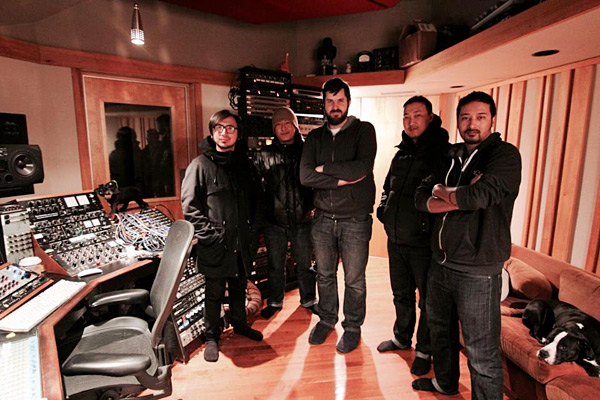
It's really interesting to me that you ended up in NYC. I mean, four guys from Nepal end up in a band in pretty much the most notable city in the entire US (where the cost of living is rather intense), recording with one of the most well-known and respected engineers in hardcore (Kurt Ballou), working with an underground record label based in Germany. What's the story there? When did you arrive in the US, what brought you here, etc.?
Basically, I came to the States to study, and I first landed in Alabama for my undergraduate degree; where I met Yogen (vocalist) in 2005. I never thought I would play or end up in a band, but time passed and he moved to NYC around 2007. After my graduation in 2008 (and staying in Virginia for almost a year until 2009), I was so frustrated without a job and shit like that, I just moved to NYC in 2010—where Yogen was already set up. I had a couple of jams that I had written during my last year in Alabama, and found Prasanna (bassist) through a friend, and a drummer who was playing guitars in a Nepali band here in NYC.
One thing I figured out was that due to the sheer number of Nepalese people here in NYC, it was easy to network and find like-minded musicians. We did go through a wild shuffle of drummers who didn't stick with us, until my old friend from Nepal, Dipesh, came to the States. He was in North Carolina and then moved to Austin. He was playing with a band called Inkblot, and I asked him to help us with our self-titled release. He was interested, came to NYC for two weeks, jammed, and recorded the whole thing in two-and-a-half days at Developing Nations in Baltimore, MD with Kevin Bernsten. Only there and then did he start listening to hardcore, after playing metal and listening to metal for a long time. Then he committed to moving to NYC with us after I told him we were about to record with Kurt Ballou. It took me a year-and-a-half to get a date with Kurt Ballou, due to his busy schedule and our schedule as well.
We wanted to physically release the album and were contacting tons of labels. Finally, Cody from Halo of Flies dug it, but couldn't put it out due to other commitments throughout the year. He did help us spread it out to his fellow friends from distros and labels, which got the attention of Timo (Alerta Antifascista Records), and we agreed to put it out on vinyl. One of our favorite bands, Masakari, was on the label as well, so we were super stoked on that.
Do you mind if I ask what you studied in college? Are you working in that field to pay the bills now, or have you had to find other ways to make ends meet?
I did my BSc in Marketing and an MBA in Human Rresources, and I was recently working in the IT sector. But my project ended, so now I'm looking. It pays to raise my family and I am happy!
Apparently you put together the Ghalazat MMXIII compilation of hardcore and metal from Nepal, Pakistan, and the US—with another on the way this year. Do you see yourself as having a "record label" of any sort, or are these collections just something you're compiling online in order to bring more exposure to lesser-known acts?
We just put that out to have fun and help friends and each other to get our music out there in the internet world. No record label, though, there are simply no means to take on such a commitment. But we will definitely keep the compilations going as long as we can.
Speaking of Ghalazat MMXIII, Sangharsha's contribution to the compilation takes on more of a dingy, sludge angle, and I've read that your earlier material (which is not on Bandcamp) was a bit more straightforward. Does Bayou represent something of a "new beginning" for the band?
Yes, definitely in terms of songwriting we as a band spent more time and have given different angles and sounds to this record, which is what you hear.
You must be thrilled with Kurt Ballou's handiwork, because the album sounds phenomenal. How different was the experience of recording at GodCity, and did it impact the way your material came together in the end?
It was the greatest experience that we ever had in terms of not only the musical side but as a human being. Kurt is the most humble guy we ever met, real down to earth and honest. On top of that he was really professional with his job, aside from jokes that we would crack while recording. From the start of the recording, he knew what we wanted after we told him what we were trying to do as artists sonically and aesthetically. Thus he helped us sound like who we wanted to be without necessarily changing or impacting us in his own personal way.
I've been unable to translate the lyrics from Bayou. I sort of get the impression that you'd prefer there be an air of mystery about the topics, but going somewhat beyond "the struggle to exist and the struggle to be alive," could you elaborate at all on the album's lyrical themes?
All of our lyrics, which are written by Yogen, are more of an abstract view of life that we see from our eyes. So people can take it in their own personal way, whatever and however they can connect to this air of mystery. Basically, the album is about our personal lives: Dealing with frustration, anxiety, happiness, and sadness.
In terms of overall songwriting quality, atmosphere, and production values Bayou is absolutely excellent, and would fit right in alongside the roster of any "popular" American label such as Deathwish Inc., etc. But do you think the non-English lyrics will act as any form of a barrier for you? I've always appreciated bands that choose to sing in their native language, there's just something about the authenticity of it that's a cool touch, but in my experience American audiences can be slow to take note of bands whose lyrics they can't understand. What's your perspective on that behavior?
Thank you, Andrew, for feeling us. I don't think it is a barrier in terms of our native language in the songs that we perform. We have seen lately that more and more diverse people have had positive things to say about our album. In terms of performing live as well, here in the States, we are connecting more and more and people are more inquisitive about what we're singing and the content of our lyrics.
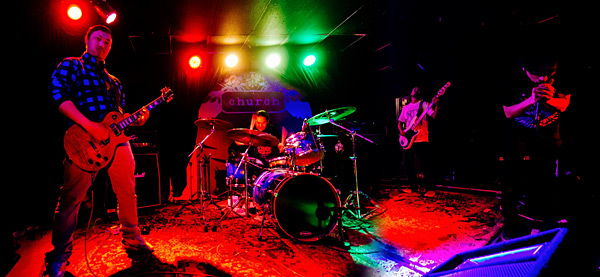
I believe I read that Sangharsha chooses not to perform live very often, is that correct? If so, what's next for the band as far as spreading the word, potentially working on new material, etc.?
We were shuffling through our drummers, so now that we have a permanent drummer in Dipesh Hirachan, we are looking to perform more and more. We are currently open to dates and slots all year round and are trying to connect with promoters. Playing live as much as we can is our focus as of right now, and probably recording a couple of songs by the end of this year.
Thanks again for your time! I'm glad you got in touch with me about checking out the band, and certainly look forward to hearing more in the future. If you have any closing thoughts or anything, feel free...
Thanks, Andrew, for your time as well, to interview me: a little known dude from an unknown hardcore band, it means a lot. Please do check out Jugaa (heavy metallic hardcore from Nepal), they are awesome.

